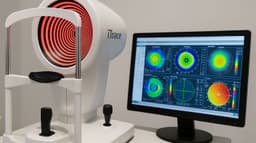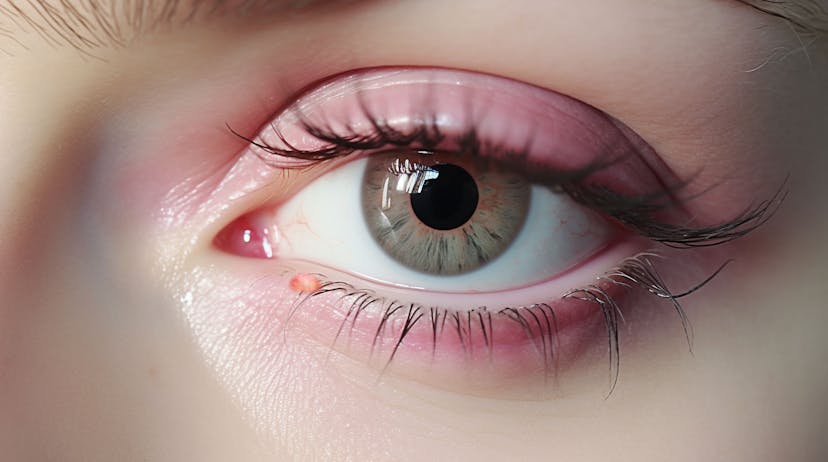
How To Recognise Retinal Emergencies Early
Your vision is one of your most precious senses, and taking care of it should always be a priority. While regular eye exams and proper eye care can help maintain good vision, it's crucial to be aware of retinal emergencies, which require immediate attention. Recognising the signs early can make a significant difference in preserving your sight.
What Are Retinal Emergencies?
A retinal emergency refers to any sudden and severe condition affecting the retina, the light-sensitive tissue at the back of your eye. The retina is vital for vision, capturing light and sending visual signals to the brain. When something goes wrong with the retina, it can lead to severe vision loss or even blindness if not treated promptly.
If you are experiencing any of the below symptoms please call My-Clinic immediately.
Tel: 0208 445 8877
Black Dot
- What It Means: Seeing a small dark spot or shadow that doesn’t move or go away.
- Possible Diagnoses: This could be a sign of a vitreous haemorrhage or a retinal tear.
- What to Do Next: Seek immediate medical attention to determine the cause and start appropriate treatment.
Scar Tissue
- What It Means: Distorted or blurry vision that can be due to scar tissue forming on the retina.
- Possible Diagnoses: This could indicate proliferative vitreoretinopathy (PVR), a complication of retinal detachment.
- What to Do Next: Contact an eye specialist to assess the severity and discuss surgical options if necessary.
Distorted Vision
- What It Means: Straight lines appear wavy or objects look misshapen.
- Possible Diagnoses: This symptom is often associated with a macular hole or macular pucker.
- What to Do Next: Schedule an urgent visit to your eye doctor for imaging tests and potential surgical intervention.
Blurred Vision
- What It Means: Vision becomes suddenly or gradually blurry, impacting clarity.
- Possible Diagnoses: Blurred vision can result from retinal vein occlusion, macular edema, or diabetic retinopathy.
- What to Do Next: An immediate eye examination is essential to diagnose and start treatment to prevent further vision loss.
Patchy Vision
- What It Means: Seeing patches or spots where vision is missing.
- Possible Diagnoses: Patchy vision can be a sign of retinal detachment or macular degeneration.
- What to Do Next: Visit an eye specialist without delay for a thorough evaluation and to discuss treatment options.
Sudden Loss of Vision
- What It Means: A rapid decrease or complete loss of vision in one or both eyes.
- Possible Diagnoses: This is often a symptom of retinal artery occlusion or retinal detachment.
- What to Do Next: Seek emergency medical care immediately to improve the chances of restoring vision.
Flashing Lights
- What It Means: Seeing brief flashes of light, often in the peripheral vision.
- Possible Diagnoses: Flashes can indicate retinal detachment or a retinal tear.
- What to Do Next: Contact your eye doctor urgently to investigate the cause and initiate treatment if needed.
Bleeding of the Eye
- What It Means: Noticeable bleeding in the eye, leading to vision changes.
- Possible Diagnoses: Vitreous haemorrhage or advanced diabetic retinopathy can cause this symptom.
- What to Do Next: Immediate medical evaluation is necessary to control the bleeding and address the underlying issue.
Central Loss of Vision
- What It Means: Loss of vision in the centre of your visual field, making it hard to see fine details.
- Possible Diagnoses: This could be due to a macular hole or age-related macular degeneration.
- What to Do Next: Schedule an urgent consultation with an eye specialist for appropriate diagnosis and treatment planning.
Shadow Vision
- What It Means: Seeing a shadow or curtain over part of your vision.
- Possible Diagnoses: This is a classic symptom of retinal detachment.
- What to Do Next: Treat this as an emergency and visit an eye clinic immediately to prevent permanent vision loss.
What to Do If You Experience Symptoms
If you notice any of the above symptoms, it’s essential to seek immediate medical attention. Time is of the essence in treating retinal emergencies to prevent permanent vision loss. Here are the steps you should take:
- Don’t Delay: Contact My-iClinic immediately. +44 0208 445 8877
- Avoid Eye Strain: Keep your eyes relaxed and avoid activities that may cause further strain.
- Follow Medical Advice: Once you receive treatment, adhere strictly to your doctor’s recommendations for follow-up care and medication.
Preventative Measures
While not all retinal emergencies can be prevented, maintaining overall eye health can reduce your risk. Here are some tips:
- Regular Eye Exams: Schedule routine eye check-ups to detect any potential issues early.
- Manage Chronic Conditions: Control conditions like diabetes and hypertension, which can affect your eye health.
- Protect Your Eyes: Wear protective eyewear during activities that could harm your eyes.
- Know Your Family History: Be aware of any genetic predispositions to eye diseases and discuss them with your doctor.
Prompt Action
Understanding the signs of retinal emergencies and taking prompt action can save your vision. Stay informed, stay vigilant, and prioritise your eye health. If you ever experience any sudden changes in your vision, don’t hesitate—seek medical help immediately. Your eyes deserve the best care, and acting quickly in an emergency can make all the difference.
Find out more by Speaking to our team









